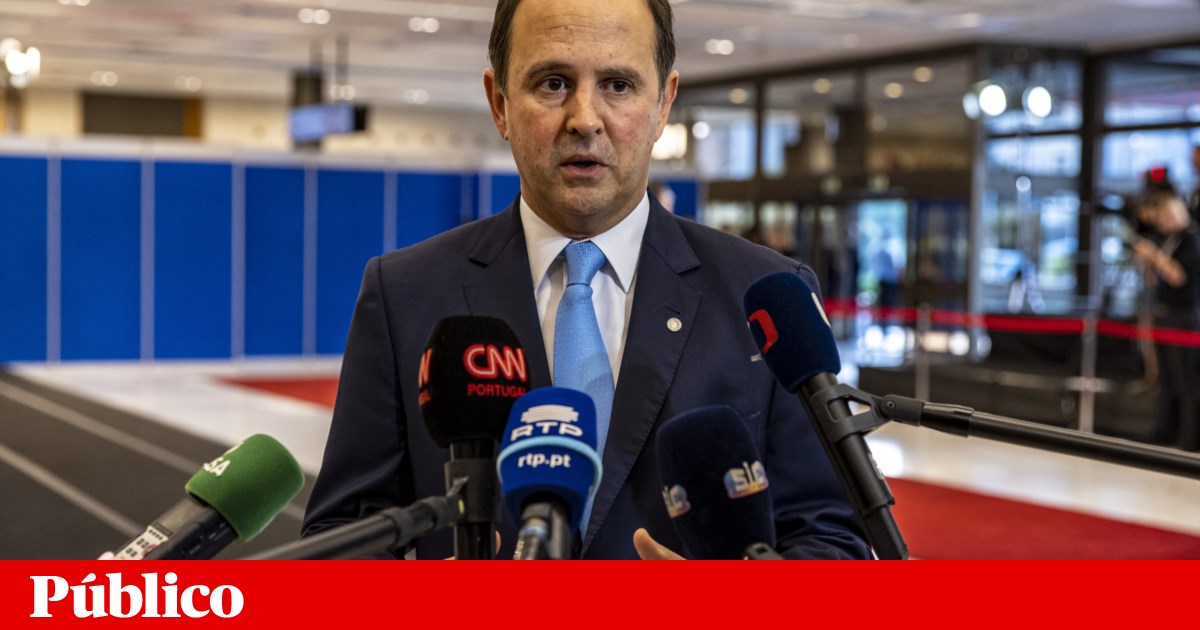
On Saturday, Portugal admitted joining the position of France, Spain, Italy, Germany and the Netherlands to jointly press for a minimum tax of 15% on the profits of large companies, although there is no consensus.
“We will always be on the side of all proposals that push this model forward as quickly as possible, and we will always be on this side. There was a blockade by Poland in the first stage that was bypassed, now it appears in Hungary and we hope that it will be possible to solve this blockade in Hungary , but if the path turns out to be insurmountable, we will always.. be at the forefront of implementing such a solution. said Fernando Medina.
On the second day of the informal meeting of European Union (EU) finance ministers under the Czech Presidency of the Council in Prague, the Portuguese official described this minimum tax as “essential for Europe, for well-being and a sense of justice also” within societies.
For Fernando Medina, this is a proposal “of great importance that Europe adopts and adopts quickly, because basically it is a proposal that will allow nation states to add taxes to companies that primarily use jurisdictions where there are no taxes or less than 15% so that everyone pays at least 15th% “.
On the day when the finance ministers discussed this file, Fernando Medina indicated that “Portugal was one of the strongest supporters of the progress of this file.”
“During the time of the French presidency, we strongly supported its adoption, because it would put an end to a state of deep injustice and profound deregulation in our societies, i.e. the fact that there are corporations, by their whims, that escape taxation in the various jurisdictions to which they are subject, that is, they have very rewarding activities Thus they escape,” the minister stated.
“It is essential that everyone pays his share of taxes for our collective interest,” he asserted.
siege of Hungary
France, Spain, Italy, Germany and the Netherlands presented a joint position on Friday to move forward, in the absence of consensus, with enhanced cooperation to lift the blockade against Hungary against the introduction of the EU’s minimum tax of 15%. on corporate earnings in 2023.
Therefore, the proposal of these five countries aims to ensure that this minimum tax is applied, despite the Hungarian ban on this measure, through the Enhanced Cooperation Mechanism, which allows a minimum number of nine member states to apply if the EU does not reach completely. agreement within a reasonable time.
EU finance ministers have yet to agree that multinationals will pay at least 15% tax on profits within the group, following the agreement reached with the Organization for Economic Co-operation and Development (OECD) to do so. Hungarian blockade.
Last December, the European Commission proposed a minimum tax of 15% on profits of multinational companies in the European Union, as agreed in the Organization for Economic Co-operation and Development, for the sake of fairness and financial stability in the grouping region.
The proposed proposal provides for an effective tax rate of 15% in the European Union, as agreed by 137 OECD countries, and states that the rules apply to any large group, national and international, that has a parent company or subsidiary in a country A member country of the European Union.
For several years now, the Organization for Economic Co-operation and Development has been discussing a tax proposal that adapts to the globalized and digital economy, with the aim of demanding taxes from multinational corporations, which pay them where it suits them.






